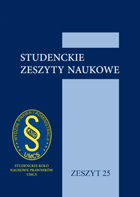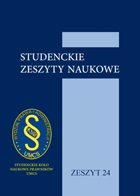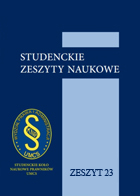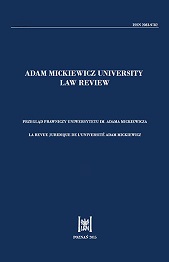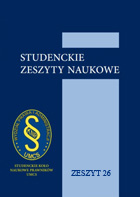
ORZECZNICTWO TRYBUNAŁU PRAW CZŁOWIEKA W STRASBURGU A STANOWIENIE I STOSOWANIE PRAWA POLSKIEGO
It is essential in the implementation of the main function of constitutional rights have the right to sue, that the scope is wider than the scope of guarantee resulting from the article 6 of the ECHR and the constitutional complaint which is the means of protection entitled directly to an individual. A good example of the impact of the Human Rights Court in Polish law establishment is the issue of preliminary custody and the related problem of violations of the article 5 of the Convention. The process of operative interpretation of the European Convention on Human Rights will be of the main focus. Reveal that the validating argumentation of the operative interpretation, specifications of the decision process and the difference between the process and validation procedures in the domestic legal order, the linguistic principles of the legal interpretation, their place in the interpretation, the role of the semantic principles, the systemic principles of the legal interpretation – their place in the interpretation, the role of systemicstructural principles and systemic-axiological arguments role of the syntactic arguments and the principles of the broad and functional interpretations.
More...
